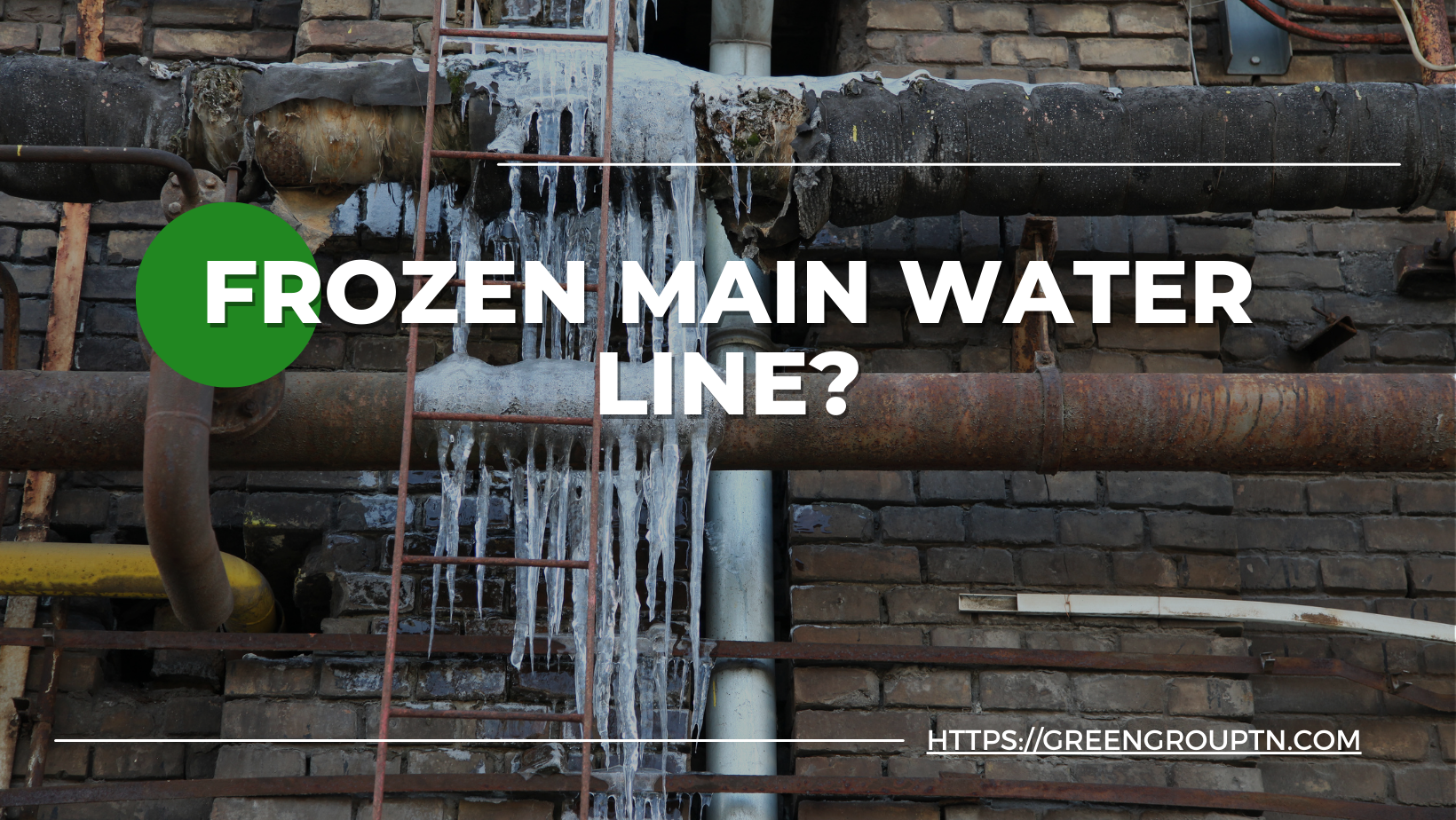A frozen main water line can cause significant damage and disrupt your water supply, particularly during cold winter months. When temperatures drop below freezing in Nashville, water in your main line can freeze, expanding inside the pipe and increasing the risk of a burst. It’s essential to know the signs of a frozen pipe, how to address it, and how to prevent future issues.
What Causes a Frozen Main Water Line?
Pipes freeze when exposed to prolonged cold temperatures, especially in areas where they are not insulated. Your main water line, which runs from the municipal supply to your home, can be particularly vulnerable if it passes through unheated areas like basements or crawl spaces. Frozen water expands within the pipe, putting intense pressure on its walls, which can lead to a burst if not managed properly.
Common Signs of a Frozen Main Water Line
Being able to recognize the signs of a frozen main water line can help you act before any significant damage occurs:
- No Water Flow: One of the most obvious signs is when you turn on a faucet and no water comes out.
- Visible Frost on Exposed Pipes: If the main line or any part of it is visible and covered in frost or ice, it’s likely frozen.
- Cold Spots: If you touch the walls or floors near the pipe and they feel unusually cold, this could indicate a frozen section.
- Sudden Drop in Water Pressure: A noticeable decrease in water pressure could suggest that the main water line is partially blocked by ice.
What to Do If Your Main Water Line Freezes
If you suspect that your main water line has frozen, quick action is essential. Follow these steps to mitigate the risk of a burst pipe and water damage:
- Turn Off the Water Supply: Immediately shut off the main water supply to prevent flooding in case the pipe bursts.
- Try to Thaw the Pipe: You can use a hairdryer, heating pad, or a space heater to slowly warm the frozen pipe. Be sure to start near the faucet and work your way back. Never use an open flame, as this could damage the pipe or cause a fire.
- Contact a Professional: If you’re unsure where the frozen section is or you can’t safely thaw the pipe yourself, contact a professional plumber right away. Green Group provides emergency plumbing services for Nashville, Murfreesboro, and Franklin homeowners to help resolve these issues before they escalate.
Preventing a Frozen Main Water Line
Prevention is the best strategy when it comes to avoiding the hassle and damage caused by a frozen main water line. Here are some tips to help keep your pipes from freezing in the first place:
- Insulate Pipes: Ensure that any exposed pipes, particularly those in unheated areas like attics or crawl spaces, are wrapped in insulation or heat tape.
- Allow Faucets to Drip: Letting a faucet drip on extremely cold nights can prevent pressure from building in the pipes, which reduces the risk of freezing.
- Maintain a Consistent Indoor Temperature: Keep your thermostat set to at least 55°F, even when you’re not at home, to prevent your pipes from freezing.
- Seal Gaps and Cracks: Inspect your home’s foundation, walls, and doors for any gaps that allow cold air to enter and seal them to keep your home warm and your pipes safe.
Frozen main water lines are a serious issue during winter, but with the right preparation and quick action, you can avoid costly damage and repairs. If you’re facing a frozen pipe or want to prevent one from happening, Green Group is here to help. Contact us at 615.756.5057 for assistance. We proudly serve Nashville, Murfreesboro, Franklin, and many other middle Tennessee communities and we’re ready to protect your home from winter plumbing disasters.

